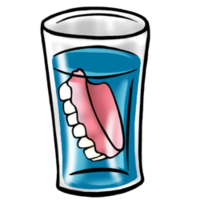Amazon.com

I am a bibliophile. Always have been. I started collecting books when I was twelve years old and now have somewhere between twelve and thirteen thousand. I try to read at least one book a day and sometimes a lot more. That being said, there are some books that can take weeks to finish.
So I am a good customer for Amazon.com.
Over the last year or two I’ve started submitting a few book reviews and book lists on things that I think might help people.
I recently got a letter from a delightful person who asked me why I go to the trouble of writing book reviews.
This was my response,
“I was rather reluctant to do reviews at all, but then discovered that some people found my comments helpful. I am often told that my forte is being able to extract the essence from a book or program and then summarize it. I hope that is true. For more expensive books I also like to provide detailed contents. I will have bought and read them, but before someone spends fifty or a hundred dollars, I would like to give them a good idea of what they will get for their money. Or even if it might be better for them to go to a lending library.
I see my reviews as complementary to my occasional Amazon lists: to help provide a reading list or bibliography. I also write articles, a blog and books, and these Amazon reviews support all three. I often have people contact me and say, “That’s interesting, where can I find out more?” These reviews are part of my response. I read many books that I don’t care for, but unless they are saying something dangerous or untrue, I prefer not to review them at all. I certainly belong to the “If you can’t say something nice, don’t say anything” school. So it is no accident that the reviews are virtually all four or five stars.
I have been sent only two books to review and I know the occasional author: I always try to ensure that I reveal that. After a lifetime in medicine and research, I am very hot on “full disclosure.” There have been some cases in which people have offered reviews to boost sales of books, while negative reviews have been removed. There was a book last year for which there were a number of reviews purporting to be from people working in a non-existent medical school. I stay on the lookout for the people who have only written one laudatory review.It is said that there are thirty million spiritual seekers in the United States, and many more who would like impartial advice on wellness and personal performance. The reviews are designed to offer these good people whatever assistance I can.
My only reward has been personal satisfaction, and the occasional kind letter like yours!”
As I started doing reviews I noticed several things. Apart from the occasional vanishing review and the rave reviews from vanishing reviewers! There are obviously some people who have their own fish to fry. Someone canned a review that I wrote about a book on metabolism and nutrition and asked about my qualifications. That’s just fine with me: I’ve spent my professional life in academia! But then I saw that he has attacked every positive review about the book and keeps citing an article that doesn’t seem to be relevant. So he obviously just has something against the author: you can’t please everyone.
The other thing that amazed me was the sheer number of reviews written by some people. The number one reviewer at Amazon.com says that she is a speed-reader. But once, in an idle moment, I found that she had reviewed over fifty books in one day. Assuming that each of her short reviews takes ten to fifteen minutes to write, well, you can do the math. Being a naïve soul, I just assumed that she had a bit of a backlog.
But now I’m not so sure. An investigative reporter named Vick Mickunas has had a look to see what is going on
He has written three blog items that make very interesting reading:
Some people will think that this is just a storm in a teacup, and perhaps it is. But if there is something fishy going on with some of the reviews at Amazon.com it is worrying. So many people base their buying decisions on these reviews and it is essential that people can have confidence in what they read.
Obviously publishers like positive reviews, but only if they are credible. I know a number of people in the publishing world and they most certainly do not want reviews from people of questionable integrity.
As a company Amazon has always impressed me, and I am sure that if there is something going wrong with the review process, they will deal with it.
Or am I being naïve again?
Biomedical Journals and Open Access

I have written before about my enormous admiration for the global attempt to make research freely available to everyone. This is such an important step toward patient empowerment and greater transparency in science and medicine.
There is currently an online petition to support free and open access to European research, and if you also believe in the principles of integrity, transparency and personal empowerment, you may want to consider signing.
I was gratified to see how many major journals are now making articles immediately and permanently available online
without charge. A number of journals require an institutional or a
personal subscription to view other content, such as reviews or paper
reports. Free trial subsciptions to these journals are available.
This seems to be the most up-to-date listing, and everyone involved really deserves our gratitude. I shall continue to update this list as more journals become involved.
| A B C D E F G H I J K L M N O P X Y Z |
||
|
Oral Health and Pointless Tests

I really like the Fox News Channel, but I sometimes worry about some of the medical advice that they dish out. The other morning I heard a dentist recommend that people should ask for a blood test to measure inflammation. She was saying that everyone should have the test, called C-Reactive Protein (CRP). This is really bad advice that is based on a fundamental misunderstanding of research data.
Yes, there is a link between dental disease and arteriosclerosis. And yes, there is a link between CRP and arteriosclerosis. But there is no good evidence that we should be measuring it on a routing basis.

The CRP Molecule
So what’s the problem about measuring CRP? If it is elevated, then what? There is no point in measuring anything at all unless you can take some action, or it guides prognosis. No good doctor would ever recommend treating a lab value. So if the CRP is elevated that would not just mean that it’s time to have a look at his or her pearly whites, it would mean a total body workup. There are dozens of causes for an elevated CRP. I know a lot about the topic: sixteen years ago I wrote one of the early scientific papers on CRP. It may go up if you have a fat tummy, have arthritis, allergies or if you are depressed, have fibromyalgia or irritable bowel syndrome. It also goes up as you get older, if you are physically inactive, or if you happen to have one of the genetic variants that can push it up.
In fact the questions of whether or not measuring CRP would improve coronary risk prediction is the subject of three papers and two editorials in the July 10, 2006 issue of the Archives of Internal Medicine and the July 4, 2006 issue of the Annals of Internal Medicine. In the July 10, 2006 issue of the Archives of Internal Medicine, a team led by Dr Aaron R. Folsom from the University of Minnesota in Minneapolis reported the results of the Atherosclerosis Risk in Communities (ARIC) study, which assessed the association of 19 novel risk markers with incident CHD in 15 792 adults followed up since 1987-1989.
The participants underwent a physical examination, including assessment of major risk factors, at the beginning of the study and every three years afterward. At four times during the follow-up period, researchers collected blood and DNA samples for analysis. Patients continue to be tracked for the development of CHD. Novel markers included measures of inflammation, endothelial function, fibrin formation, fibrinolysis, B vitamins, and antibodies to infectious agents.
Folsom concluded that:
“C-reactive protein level does not emerge as a clinically useful addition to basic risk-factor assessment for identifying patients at risk of a first CHD event. Routine screening is not warranted for any of the other 18 novel risk factors tested, either.”
Another study from Brigham and Women’s Hospital in Boston did suggest that CRP might be helpful in predicting coronary disease in some women. But in an editorial, George Davey Smith from the University of Bristol in England had this to say:
“There are many reasons for skepticism about the role of CRP as a predictor of CHD: CRP may not be causally related to CHD; it remains more expensive than asking patients about their health, lifestyle, and socioeconomic background; and it adds only modest additional predictive ability over conventional risk factors, even in Cook and colleagues’ (i.e. the Brigham and Women’s) study.”
The moral of the story? Random measurements of CRP have not been shown to be of much value.
And be a bit cautious about medical advice on Fox News.
Information Overload

The British Economic and Social Research Council (ESRC) has funded some very important research that confirms something that many of us have feared for quite a while: there is now so much information online that important science websites are in danger of becoming buried in a sheer avalanche of facts. Key science sites are failing to register in the top 30 Google search results.
Dr Ralph Schroeder, Dr Alexandre Caldas, Professor William Dutton, and Dr. Jenny Fry of the Oxford Internet Institute have investigated how the Internet is changing the way in which people seek out sources of scientific expertise.
Traditionally publishers have held a central position because of the importance of academic articles, but this is changing with increasing uses of the Internet and Web.
The study focused on how academic researchers in particular interact with the Web on topics including HIV/AIDS, climate change, terrorism, the Internet and society. These subjects are, of course, all highly topical, but the findings of this study will apply much more widely to the uses of the Internet and Web for searching for information on a variety of topics.
The research also confirmed something that clinicians have known for some time: the Web is far from being a neutral source of information. It has a particular structure that steers the search in directions that may not be intended by the user and so makes some sites more accessible than others. Search engines such as Google play an increasingly important gate-keeping role that will influence the information that is found. They can shape “winners and losers” by means that are not always apparent and moreover do so in a manner which can vary according to subject matter.
There is also a problem that some vested interests are able to “buy” high visibility. Many people with psychological difficulties have stumbled on Scientology websites without realizing it. And there are some people who have the time and the energy to attract a lot of “hits.”
The researchers came to several conclusions:
* The “visibility” of information on the Web is of increasing importance. Do people looking for research results on climate change or terrorism find themselves directed to a few top sites rather than a wide array of diverse sources? Do they encounter the most highly regarded researchers rather than marginal ones?
* Interviews revealed that researchers’ ideas of key networks, structures and organisations may not be mirrored by search engines. For example the HIV/AIDS researchers reported using national journals, charity organisations, statistics and public sector organisations but none of these appear in the top 30 search results for generic domain keywords. In addition, a number of institutions, people and other key organisations and resources failed to appear in the top 30 search results.
* The role search engines play can vary according to topic. In the HIV/AIDS and the Internet and society domains, for instance, search engines such as Google was mainly used as an aide memoire for locating known sources. For researchers on terrorism, the search engine played a more central role in exploring the object of research and identifying relevant sites of information.
“This will be an issue not just for policymakers,” Dr. Schroeder says, “but for educators, organisations involved in science and research communication, regulators responsible for access to the Web, and citizens who are concerned with the diversity and richness of the information world around them.”
Deep Vein Thrombosis
I am sorry to hear that the United States Vice-President Dick Cheney has just developed a blood clot in his leg and is being treated with anticoagulants (blood-thinning medications) that he will need to be on for several months.
He experienced some discomfort in his lower left leg this morning, and the diagnosis of deep vein thrombosis was made.
Mr Cheney is now 66 years old and has a history of cardiac problems. He has suffered at least four myocardial infarctions (heart attacks) and has a pacemaker.
He had quadruple bypass surgery in 1988 after his third heart attack.He also had an operation to remove blood clots around his knees in 2005.
Mr Cheney recently returned to Washington after long flights to Japan, Australia, Pakistan and Afghanistan.
As I discussed a few months ago deep vein thrombosis – often shortened to "DVT" – can be associated with long-distance flying because it leads to inactivity and dehydration. Not, as was formerly thought, low oxygen pressure.
Blood clots in the legs are not in themselves life-threatening but they can be dangerous if they become wedged in the lungs (pulmonary embolism) or other organs, which can in severe cases be fatal.
Although the venous and arterial sides of the circulation are often thought of as quite different, it is not that unusual for someone to have problems in both, either because of immobility, metabolic disturbances or low grade inflammation.
With Spring Break and early summer vacations coming up, please don’t forget to keep moving when you are on planes, limit the alcohol and coffee cnsumption, and have plenty of water to drink.
Bon voyage!
More Saturday Satire

I think that I can tease Apple because I like their products so much: I’ve bought enough of them! And I’ll be getting a lot more come June.
Here’s another piece of fun.
Enjoy!
Becoming Cosmopolitan
I grew up in a country where football – that’s the soccer variety – is almost a religion and it’s virtually impossible to go through life without attaching yourself to one team or another. It all becomes rather tribal. But it reflects a need to belong to groups or clans. Many of us eventually grow out of that need to belong to a group and detaching like that is an essential part of personal and spiritual growth and development.
One of the most pernicious ideas is born of a myth that we are separated and segregated into groups that are defined by criteria like gender, language, race, religion or some other kind of boundary. And it is easy to see that these boundaries are a major cause of conflict.
I just finished an enthralling book – Cosmopolitanism: Ethics in a World of Strangers – by Kwame Anthony Appiah, in which he challenges this kind of separative thinking by resurrecting the ancient philosophy of “cosmopolitanism.” Cosmopolitanism is the idea that all of humanity belongs to a single moral community. This is contrasted with ideologies of patriotism and nationalism. This school of thought dates back almost 2500 years to the Cynics of Ancient Greece. They first articulated the cosmopolitan ideal that all human beings were citizens of the world. Later on, these ideas were elaborated by another group of philosophers: the Stoics.
According to Appiah, a Professor of Philosophy at Princeton, the influence of cosmopolitanism has stretched down the ages and through to the Enlightenment. He takes Immanuel Kant’s notion of a League of Nations and the Declaration of the Rights of Man to be two manifestations of this ancient idea.
Appiah sees cosmopolitanism as a dynamic concept based on two fundamental ideas. The first is the idea that we have responsibilities to others that are beyond those based on kinship or citizenship. Second is something often forgotten: just because other people have different customs and beliefs from ours, they will likely still have meaning and value. We may not agree with someone else, but mutual understanding should be a first goal. I think that most of us can agree with that.
In parts of Europe, there have recently been misgivings about the growing diversity and multiculturalism of countries like the United Kingdom, with people asking whether it is doing no more than fracturing society. Appiah has this to say, “If we want to preserve a wide range of human conditions because it allows free people the best chance to make their own lives, there is no place for the enforcement of diversity by trapping people within a kind of difference that they long to escape. There simply is no decent way to sustain those communities of difference that will not survive without the free allegiance of their members.”
Cosmopolitanism, balances our “obligations to others” with the “value not just of human life but of particular human lives,” what Appiah calls “universality plus difference.” He remains skeptical about simple maxims for ethical behavior such as the Golden Rule. He demonstrates its failings as a moral precept. He argues that cosmopolitanism is the name not “of the solution but of the challenge.”
Cosmopolitanism is an important concept that bears close examination, particularly in the light of some of the new discoveries about ethics and the brain and also about the fundamental inter-connectedness of all life. I shall have a little more to say about that in another post.
The Latest Report on Climate Change
As expected the Intergovernmental Panel on Climate Change (IPCC) concludes that there is more than a 90% chance that global warming has a human cause. The panel said that temperatures were probably going to increase by 1.8-4 degrees Celsius (3.2-7.2 degrees Fahrenheit) by the end of the century. It also projected that sea levels were most likely to rise by 28-43cm, and global warming was likely to influence the intensity of tropical storms.
The findings are the first of four IPCC reports to be published this year.
Also as expected, the attacks on the report began even before it was published. Some radio critics have committed a fundamental mistake of saying that people have been warning of this for years and nothing has happened. First, something has happened, and second, the report is careful to say that precise estimates are difficult. It is the direction of change which should be of greatest importance.
The Mail and Guardian Online is reporting that some scientists and economists have been offered $10 000 each by a lobby group funded by one of the world’s largest oil companies – ExxonMobil – to undermine the report.
There is also a very well reasoned article about the semantics of climate change. The precise language of science and the quite different way in which politicians and many marketing people use language. It is well worth reading.
My main concern remains the impact of climate change on health and well-being. And many parts of the world, from Florida to the Horn of Africa are already experiencing that.
Saturday Satire

Most people seem to know that I am a cheer leader for virtually all things Apple. I’m on about my fifteenth Macintosh and I have no idea how many iPods we have. And the thought of the up-coming iPhone has me palpitating with desire. I’ve been lovingly poring over it’s specs and I know that I’m going to be at the front of the line when it comes out in June.
But I just had a mega snigger when I saw this from the Borowitz Report:
Apple Recalls iPhone; Forgot to Include ‘Phone’ Feature
Jobs: OopsIn
what could prove to be the most embarrassing misstep in consumer
electronics history, Apple Inc. announced today that it would recall
its entire production run of the Apple iPhone after discovering that it
had failed to include a “phone” feature in the much-hyped handheld
device.Speaking from Apple corporate headquarters, company
founder Steve Jobs offered consumers his apology for the monumental
goof and seemed to be searching for an explanation for how it could
have occurred.“First and foremost, we’re sorry,” a red-faced
Mr. Jobs said in a conference call with Wall Street analysts. “When you
make a product called the iPhone, people expect it to include a phone,
and we messed that part up.”Mr. Jobs suggested that Apple had
been so focused on making the iPhone the “coolest handheld device ever”
that it had forgotten to include one of the most important features of
any cellular phone: “One thing people like about cell phones is that
you can dial numbers into them and call people.”Instead, he
explained, Apple’s engineers had crammed the iPhone with a plethora of
what he called “non-phonal features,” such as a camera, an MP3 player,
a taser, and a tactical nuclear weapon.While Mr. Jobs said that
almost all of the nine million iPhones that had been shipped to stores
were on their way back to Apple’s manufacturing plant, he offered
advice to consumers who somehow had already obtained the phoneless
iPhone: “Just hold it up to your head and pretend to be talking into
it.”Elsewhere, the Fish and Wildlife Service said that it would remove wolves from the endangered species list and add Republicans.
RP On The Radio

Next Monday, February 5th, I am going to have the privilege of having a one hour conversation about Healing, Meaning and Purpose with Kimberley Colvard at Radio Sandy Springs. We are going to be on from 12 noon to 1PM EST. The show gets repeated twelve hours later for you folk in Europe and Australasia.
Here is the neat thing: you can either listen on the radio (AM 1620 in Atlanta) or listen in on line. I am hoping to put the audio file on this website. So you can listen at your leisure as I explain how we discovered that the Laws of Healing are changing, what it means for your health, well-being, personal development and business, and how you can use these new insights starting today.
I do a lot of radio and TV work, but I am particularly happy to be doing this particular show. Kim is the author of an extremely interesting book – Life is a Perception, What’s Yours?: How your thoughts and beliefs determine your life – that is full of novel ideas clearly showing that she is completey in tune with the aims and objectives of Integrated Health and Medicine. When I first started explaining the principles to her, she was one of the few people who “got it” straight away. So I am expecting this to be a very dynamic and creative program.
Stayed tuned (!), and you will be able to assess that for yourself!






